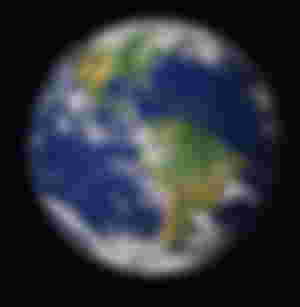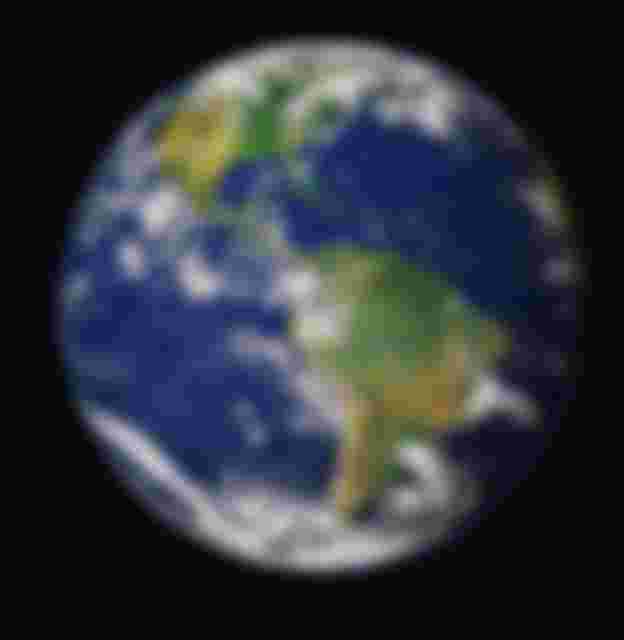Delicate Cycle of the Planet
All life is based on balance. We have to keep this balance in every moment of our lives and in every relationship we experience. Whether it's our work life, my love life, or our friendships, it's always based on balance. Just as human relations are based on balance, our physical activities, from the way we eat to the sports we do, are also based on balance. In short, life is balance.

Our planet also has a unique balance. We have to keep up with it. We must conform to the world, not it to us.
Resources such as air, water and food, which are necessary for the survival of all living things on earth, are limited. If we could only use these resources once, they would run out quickly. For example, without the water cycle, the world's water resources would quickly run out and life would end. Water resources are renewed as the water vapor in the air condenses into water and returns to the earth as rain.
Similarly, there are carbon and oxygen cycles. For example, the amount of carbon dioxide in the atmosphere increases with some factors such as combustion, aerobic respiration, and the decay of dead organisms. If plants did not have photosynthesis - you know, trees absorb carbon dioxide from the air and give oxygen to the air - the amount of carbon dioxide in the air would increase greatly and life would come to an end.
The production of antibodies against viruses and bacteria in the human body occurs thanks to proteins. Without nitrogen, humans would be vulnerable to microbes because there would be no proteins.
Our world actually provides the balance it needs naturally. All we have to do about it is not to interfere with it. It's that simple actually.
The gases in the earth's atmosphere absorb some of the sun's rays and reflect some of them to the earth. This phenomenon is called the greenhouse effect. The greenhouse effect plays an important role in the temperature of the earth. In recent years, with the increase in greenhouse gases such as methane gas, carbon dioxide and sulfur dioxide in the atmosphere, especially due to the excessive consumption of fossil fuels, the sun's rays are more absorbed by these gases and they are prevented from leaving the world. This caused the world's temperature to rise. The rising temperature had many bad consequences, such as melting glaciers, changing climates, and damaging vegetation. Of course, the most important is the reduction of water resources. Disruption of the water cycle. If there is no water, there is no life.
This situation is discussed under the title of global warming in the world.
Scientists talk about some economic, environmental and social problems that may arise as a result of global warming.
So, What Are These Global Warming Issues?

According to scientists, there will be a decrease in the amount of precipitation due to the increasing world temperature as a result of global warming. This can have dire environmental consequences such as desertification, drought and erosion.
Today, perhaps the most important problem is that the usable water resources in the world have decreased considerably. Now we are starting to feel this situation better. In the world, which is three-quarters of water, there is very little water that is drinkable. It is emphasized by scientists that people and animals may have difficulty in finding the water they need, as the evaporation in these drinkable fresh water resources will increase as a result of the rapidly increasing temperature. A person can go days without eating. I read that a man who didn't eat anything for 11 days could survive after he got lost in the jungle. However, the same is not true for water. 70% of the human body is water. A person can go without water for a maximum of 3 days. Any further prolongation of this period may result in death.
Scientists state that the increase in world temperature will disrupt the biological balance of people and there may be an increase in epidemics.
Today, there is a never-melting snow cover on the mountain peaks. This snow cover never melts because the high peaks are cold. However, this snow cover, which melts with the effect of increasing temperature, may bring avalanche and flood danger.
With the increase in sea level as a result of the melting of the glaciers, the direction of the ocean currents may change. This can lead to disruption of the marine ecosystem and loss of biodiversity. Since ocean currents also play a decisive role on the world's climate, the climate balance of the world may also be disturbed. In addition, the lives of animals in the arctic region will be endangered. Even today, polar bears are in danger of extinction. However, the rising sea level will negatively affect human life as it will cause many coastal cities in the world to be flooded.
Drought as a result of increased temperature increases the risk of forest fires. Unfortunately, we have experienced this in many parts of the world, especially recently! Forests are the lungs of the world. Without trees, the amount of oxygen decreases and the amount of carbon dioxide increases. All living things are endangered. Maybe we won't be able to take a deep breath very soon. Even breathing will be a problem.
As a result of the drought that occurs with the increase in the world temperature, the animal production will decrease because the pasture areas where the animals will graze will decrease. Because of this, people may have a hard time finding animal foods. Protein is an essential nutrient for the human body.
Decreased farmland could lead to mass migration of people. High concentrations of people migrating only to areas with natural resources in certain areas can lead to social upheaval.
I hope you liked my article. Please indicate the problems you have experienced due to global warming as a comment. For example, the scarcity of water and food. Thank you.


I really hope we start being global warming conscious before there's scarcity of water and food